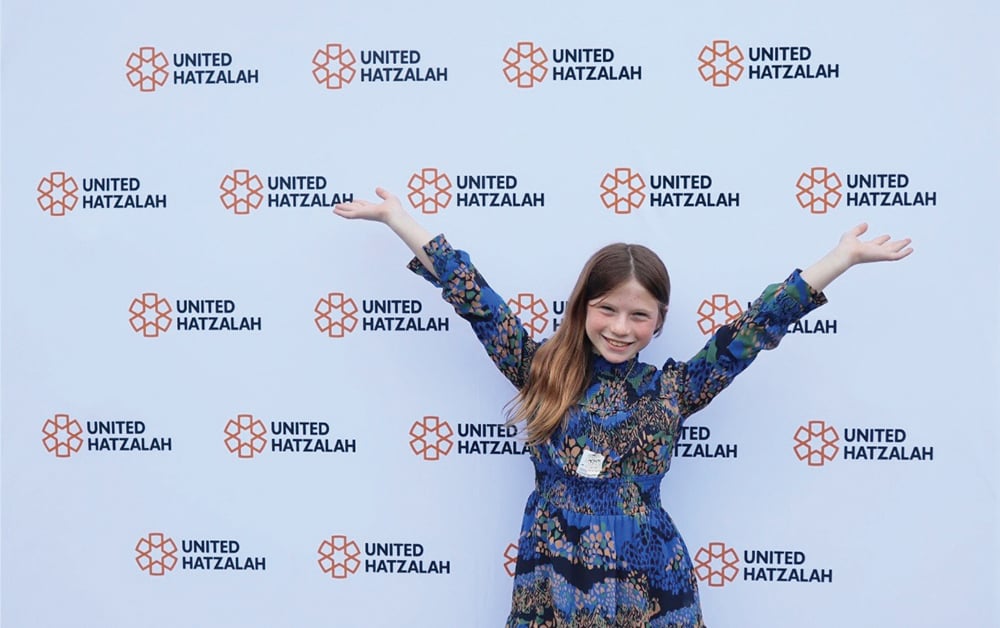In this week’s Torah portion, Yisro, we delve into the profound commandment of honoring our fathers and mothers. The “Aseret Hadibrot” (The Ten Commandments,) delivered in our parsha establishes the importance of this directive, revealing a unique partnership between parents and the Divine.
A braysh in Talmud Kiddushin (30b) enriches our understanding by highlighting the partners involved in creating a child: the mother, the father, and Hashem. By honoring our parents, we also honor God, acknowledging the divine partnership in our existence. This connection is so significant that the repetition of the fifth commandment in Devarim (5:16) adds an extra phrase, “Honor your father and mother, as Hashem, your God has commanded you…” This reinforces the notion that honoring parents is not a mere courtesy—it is a profound mitzvah, an obligation to God, with the promise of long life as a reward.
Delving further into Vayikra (19:3), we uncover an additional layer to this mitzvah: the call to not only honor but also revere our parents. Rashi, drawing on Gemara in Kiddushin (30b), unveils the wisdom behind this directive, guiding us to treat both parents with equality, acknowledging the natural inclinations to revere a father and honor a mother.
How does one honor and revere one’s parents? At what point in our lives does this become most relevant? Is this only a mitzvah for young children living at home with their parents?
The wisdom of the Rambam and Rashi offers insight. Reverence, according to the Rambam, involves not usurping, interrupting, or contradicting one’s parents. Rashi described the practicality of honoring our parents as feeding them, dressing them and assisting them with walking. We typically think of honoring and fearing one’s parents as a mitzvah meant for younger children. Looking at these definitions one realizes that perhaps we do not get the opportunity to fulfill these mitzvos properly until our parents are much older, as they grapple with the challenges of aging and cognitive decline.
The Gemara in Kiddushin (31b) illustrates this point vividly. Stories of sacrificing personal gain, enduring humiliation, and meeting erratic demands underscore the deep commitment to honor and revere parents. The difficulty lies not in honoring parents during the vigor of their youth but in preserving their dignity and well-being as they face the vulnerabilities of old age.
Dama ben Netina was a non-Jewish gem merchant. The Talmud recounts an incident where the Sages approached him to purchase a unique gem needed for the Breastplate worn by the High Priest in the Holy Temple. The gem was in Dama’s possession, but the key to the safe was under his father’s pillow, and his father was asleep. Despite the significant financial opportunity and the urgency of the matter, Dama chose not to disturb his father’s rest. He prioritized honoring his father over the potential profit.
The Talmud (Bava Metzia 58b) tells the story of Rabbi Yehoshua ben Perachiah, who had a difficult relationship with his mother. Despite her disrespectful behavior towards him, Rabbi Yehoshua demonstrated an unwavering commitment to honoring her. One day, while traveling together, she fell into a swamp, and he hesitated about whether to help her. At that moment, she cited the verse from Shemot 20:12 (Honor your father and mother), prompting Rabbi Yehoshua to assist her, even though it meant immersing himself in the swamp to rescue her.
Rava, a prominent Talmudic sage, had a challenging relationship with his mother. Despite her difficult nature, he demonstrated great patience and respect. The Talmud narrates an incident where Rava intended to sit in a certain location. His mother, however, wanted him to move to a different place. Instead of arguing or asserting his position, Rava quietly moved to the place his mother preferred, showcasing the importance of avoiding confrontations and arguments with parents.
These stories emphasize the enduring commitment to honoring and respecting parents, even in complex and challenging situations. They serve as practical illustrations of the timeless ethical principles embedded in the commandment to honor one’s father and mother.
What starts to emerge is the idea that honoring and revering one’s parents is a mitzvah that one is best able to fulfill when they become elderly and begin to show signs of cognitive decline. That’s when it is most challenging not to usurp their place, interrupt them or treat them with disrespect. That is also the time when we get to fulfill Rashi’s definition of “kibud av v’em” by feeding them, dressing them and assisting them with their walking. This underscores the profound significance attached to honoring and revering parents during their twilight years.
Apparently, honoring one’s parents when one is age six and they are in their late 20s is no big deal. They are healthy and strong. The bigger challenge is to honor and revere them when we are at age 60 and they are in their 80s, starting to show signs of infirmity. That may be why the Torah offers a special reward of long life, an incentive that is rare in the Torah.
May we all find the inner strength to always honor and revere our parents during the easy times, the hard times and even posthumously. Learning Torah, performing mitzvot and saying the Kaddish prayer after the death of one’s parent all bring honor and merit on their behalf. May we also merit to live long, healthy and meaningful lives as a result.
Rabbi Dr. Avi Kuperberg is a forensic, clinical psychologist and a member of the American Psychology-Law Society. He is the coordinator of Bikur Cholim/Chesed at Congregation Torah Ohr in Boca Raton, Florida. He can be reached at [email protected].












